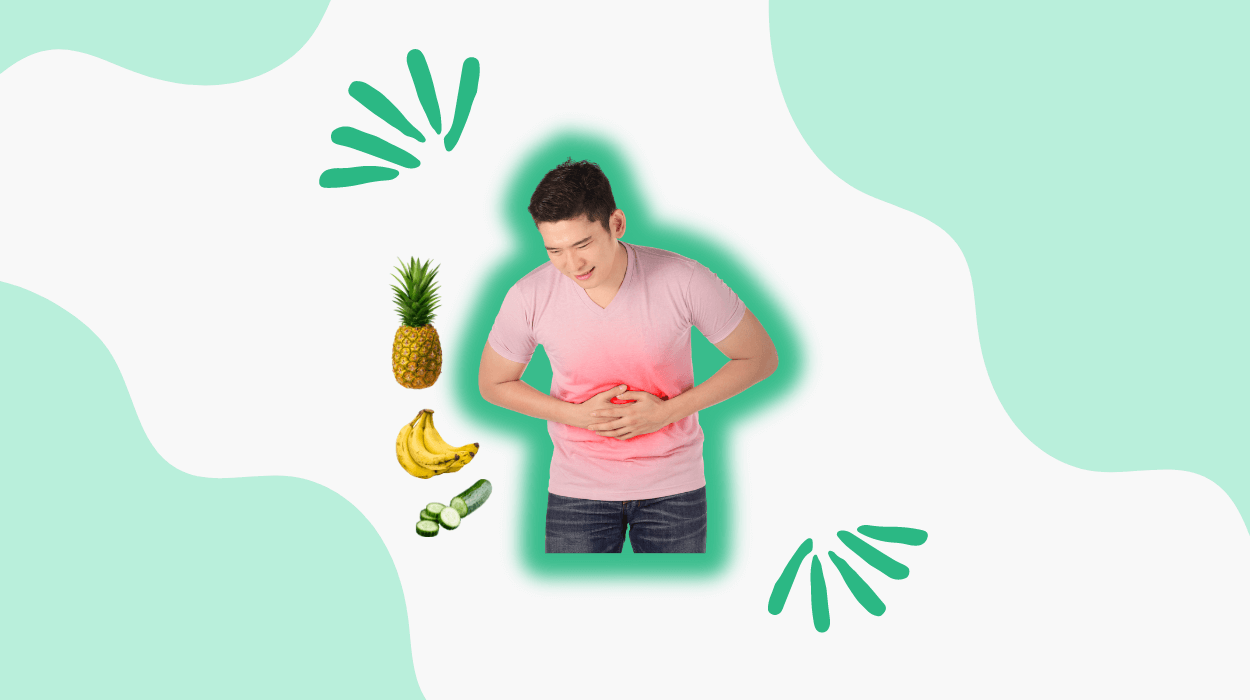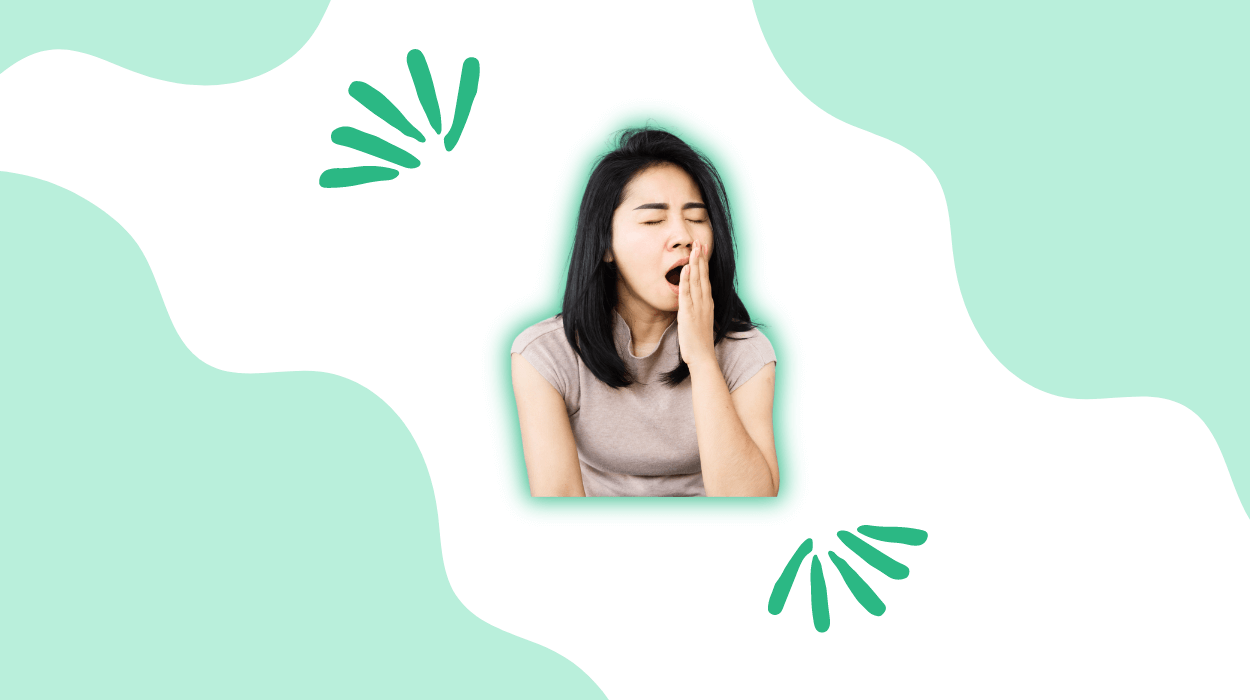

Yawning is a common reaction of our body to tiredness and stress. It can also serve as a signal of the body’s attempt to control stress levels.
Yawning is a mechanism to alert the brain to take deep breaths that may become disrupted during intense anxiety moments.
Symptoms such as inability to concentrate and feeling low, along with excessive yawning, could indicate anxiety, insomnia, and certain medical reactions.
Yawning could be awkward if it comes in between important meetings and in the office. Thus, it
is essential to take proper measures to overcome the issue of excessive yawning.
This article sheds light on the causes and underlying reasons for anxiety-induced yawning. You will learn more about the effective strategies to manage your yawning and its associated symptoms.

| Causes | Description | Examples |
|---|---|---|
|
Sleep Problems |
Tiredness, fatigue, and sleep disorders like obstructive sleep apnea |
Difficulty concentrating, irritability, slower reflexes, muscle discomfort |
|
Anxiety |
Triggered by its effects on the respiratory system and energy levels |
Increased yawning during anxious periods, no clear trigger |
|
Medications |
Side effects of drugs like antidepressants, antihistamines, and pain relief meds |
Fatigue that leads to excessive yawning |
|
Depression |
Antidepressant side effects or fatigue can cause or worsen excessive yawning |
Consultation for proper management recommended |
|
Heart Issues |
Linked to conditions like bleeding around the heart or heart attacks |
Symptoms: chest pain, shortness of breath, nausea |
Anxiety could trigger yawning, which can manifest through symptoms such as increased heart rate, respiratory distress, and changes in energy levels.
Yawning related to anxiety can intensify during periods of heightened stress, worsening feelings of unease and discomfort.
People dealing with anxiety often experience yawning a lot of times, even when they are not stressed or anxious.
People experiencing a stroke may observe excessive yawning, which helps regulate and reduce the brain and body’s core temperature following brain injury.
Research indicates that the brain stem, the area at the base of the brain that relates to the spinal cord, may contribute to the yawning process. Excessive yawning can manifest before or after a stroke, potentially acting as a mechanism to help the body cope with the aftermath of a stroke.
People with epilepsy may experience excessive yawning, especially before, during, or after seizures. Temporal lobe epilepsy could come with pronounced yawning episodes, which may work as a potential indicator of epilepsy. Fatigue after having a seizure may cause excessive yawning in people dealing with epilepsy.
Tiredness and fatigue could cause excessive yawning. When people experience constant fatigue or daytime sleepiness, it could be a sign of an underlying sleep disorder that negatively affects the quality of their rest.
Excessive yawning due to insufficient sleep could make concentrating hard, cause irritability, and slow down reflexes.
You may experience excessive yawning if diagnosed with Multiple Sclerosis (M.S.), causing fatigue and disrupted body temperature.
People with M.S. could experience trouble sleeping, affecting their cortisol levels and yawning. Multiple Sclerosis may also manifest through other symptoms like vision problems, dizziness, and difficulty walking.
Excessive yawning is observed during the advanced stages of liver failure, often causing fatigue. Liver failure can manifest in various ways, such as
Yawning excessively in liver failure may be a consequence of the body’s struggle to cope with the vast physiological result of liver dysfunction.
Antidepressant medications for depression could worsen the yawning patterns by causing fatigue. Prescribed medicines for depression, like Remeron, may increase yawning by affecting the brain temperature and core body temperature.
Excessive yawning accompanied by symptoms like chest pain or shortness of breath could indicate potential heart problems related to the vagus nerve. The vagus nerve attaches the brain to the heart and stomach, which helps regulate various bodily functions. In some conditions, excessive yawning might mean bleeding around the heart areas.
The treatments for yawning depend on the cause of yawning, which includes:
You can manage yawning by taking slower and calmer breaths, which can gradually help reset the imbalanced level of oxygen and carbon dioxide in the body.
Practicing slower breathing may help prevent the cycle of hyperventilation and yawning from perpetuating.
You can also create a timely sleep schedule, which will help you sleep and wake up at the same time daily. Building a sleep routine could help eliminate excessive stress levels and encourage relaxation, resulting in less yawning in the daytime.
To reduce excessive yawning, you must engage in physical activities that may provide you with energy and help you sleep better and on time at night.
Avoiding consuming caffeine, alcohol, and heavy meals before bed could help reduce excessive yawning. Using a breathing device may help control your breathing and relax your body.
Must Visit: Mindfulness Meditation For Anxiety: Detailed Overview
Increased cortisol levels, a stress hormone, are connected with the excessive urge to yawn. It could also happen with nervous system disorders, which can put your body under stress.
However, yawning may subside when an emotional situation resolves, providing the body time to recover.
Recommended:
Hyperventilation is a physiological response associated with anxiety that may manifest through various breathing patterns that elevated stress levels might trigger.
During anxiety attacks, people may experience rapid breathing, where the nervousness compels the body to breathe more quickly, leading to the expulsion of excess carbon dioxide without adequate oxygen intake.
Hyperventilation could worsen physical symptoms like dry mouth and dizziness by increasing the feeling of anxiety and stress. You may also feel numbness and tingling around your palm and mouth.
When you hyperventilate, breathe in more carbon dioxide to raise its levels in your blood. Heavy breathing could also be managed by listening to assurance from your loved ones, like, “You’re doing okay,” “You are not facing a heart attack,” etc. Please ensure you use a soft tone while conveying these comforting words to a person hyperventilating.
Yes. Excessive yawning can indicate health conditions like sleep disorders, depression, and medication side effects other than anxiety. However, you need a health assessment to understand the actual cause behind the excessive yawning you are experiencing.
Sleep disturbances, medication side effects, underlying health conditions, and fatigue could trigger excessive yawning in people with anxiety. Consulting a healthcare provider may help you with accurate diagnosis and appropriate anxiety management.
Excessive yawning can disrupt daily functioning by causing fatigue, difficulty concentrating, and social challenges in life for people with anxiety.
Lifestyle changes, like mindfulness practices, regular exercise, balanced nutrition, and adequate sleep, might help reduce excessive yawning in individuals with anxiety. Depending on your yawning intensity and condition, you can also seek healthcare support for personalized treatment.
Excessive yawning may impact the effectiveness of anxiety medications or treatments, potentially indicating unresolved anxiety symptoms. Understanding this connection could help choose effective treatment strategies for improved outcomes and better management of anxiety disorders.
Yawning usually happens when you are too tired, drowsy, or feeling fatigued. Yawning during boredom and stressful situations is generally expected.
Excessive yawning could indicate an underlying health concern that requires medical support. However, the relationship between yawning and anxiety is a complex interplay that needs further exploration.
Increasing physical activity and building a sleep schedule could help manage your stress levels, potentially improving your yawning concern.
Avoid using blue light devices at least one hour before bed as they can hinder your sleep quality and ability to fall asleep.
You can also seek therapy from an experienced physiatrist if you think that your anxiety is triggering the yawning or making it worse.
Stay mindful of the medications you are taking, as drugs like antidepressants might elevate the yawning, causing distress and trouble focusing.
Tyler Read earned an undergraduate academic degree from Sonoma State University, California and is a certified personal trainer (CPT) with NASM (National Academy of Sports Medicine). With over 16 years of experience, Tyler has trained clients both online and in-person.
He is passionate about helping others turn their love for fitness into a career. Tyler has worked with many local and commercial gyms before establishing his successful private personal training business, which he continues to operate.
